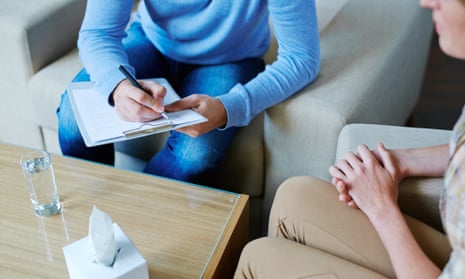Last week was RUOK? Day, a day dedicated to reducing the impact of suicide on our lives. The aims of awareness campaigns such as this are, of course, noble: suicide is a terrible problem that affects far too many of our lives, and preventing even a single suicide is something that we can all aspire to do.
But for many with mental illness, including myself, those campaigns are frustrating. Maybe it’s the image of a friendly colleague cheerfully checking in, or the uncertain support of an acquaintance who feels compelled to awkwardly check whether you are drowning, or maybe it’s just that many of us know, from personal experience, that it just doesn’t work. If only mental health was as easy as a difficult conversation.
The sad fact that anyone with depression can tell you is that there is nothing worse than being asked how you are. I was depressed for years – in that time, people asked me how I was hundreds of times. There’s nothing worse than feeling guilty with a smile pasted on your face, telling people that you’re “just tired” or “feeling fine, really”, because you don’t want to admit that you aren’t fine. You haven’t been fine for some time. But admitting that to anyone, never mind a colleague or passing acquaintance, is impossible when you can’t even admit it to yourself.
And the data backs this up. Despite the amazing work in raising awareness of mental health and suicide in the last decades, eight Australians take their own life every day. Suicide is one of the leading causes of death for young people, in particular remote communities who see some of the worst rates of suicide in the world.
We raise awareness. We have conversations, and morning teas. And people – many of them tragically young – kill themselves at alarming rates.
It sometimes feels like something is broken that we cannot fix. But there are things that have been demonstrated to work, that we could do here and now.
How can we help?
One of the most counterintuitive things about suicide is that it is almost always an impulsive choice. That sounds ridiculous – how can the biggest decision of your life be something that you have barely planned? – but there is quite a bit of research demonstrating that this is the case.
Most suicides are committed within a short window of despair. Figures vary – for obvious reasons, it’s a pretty hard thing to study – but generally speaking people spend between 10 and 30 minutes from the moment that they decide to end their life to the moment they do it. Since we can only really study people who unsuccessfully attempt suicide in this manner, it’s likely that the figure for people who do commit suicide is even lower.
And when we look at some of the most effective methods of preventing suicide, they actually fit this mould amazingly well. A well-known example in epidemiology is that putting up fencing on bridges prevents suicide. Not “prevents suicide on bridges”, it prevents suicide full stop. A local example of this is Australia’s gun laws. Guns used to be a very common method of suicide, but after the 1996 national firearms agreement, suicide rates dropped sharply.
People gave away their guns and suddenly suicide just didn’t seem to be as easy an option.
Isn’t it all about mental health?
It’s important to note: mental health options for preventing suicide are also vital. Crisis services and stepped care – where you provide immediate support for people undergoing mental health crises, then slowly help them get back on their feet in the community – are extremely well-supported ways to help people in dire straits.
But often, the reasons for suicide are as much social as they are medical. We know that young Aboriginal men who live in remote communities are at the highest risk for suicide of any group in Australia. There is no medical reason that this should be the case, it’s just that all of the myriad elements of social disadvantage add up to a crushing burden.
When I was depressed and hit my lowest point, my family leaped in, got me seeing a psychiatrist and did a host of other things for me that I didn’t even recognise at the time. I was lucky. My family is well-off and could afford to put me through private treatment while I lived at home. But when waiting times for psychiatric appointments are in the months and can be many hours of travel away from where you live, it’s not as simple.
When people have to choose between food and medication, it’s not surprising that they don’t always get better.
Preventing suicide – stopping those eight deaths a day – will take a multifaceted effort aimed at reducing the access to means (building those bridge fences), providing accessible mental health care, improving social support for disadvantaged people, and yes, maybe, some difficult conversations. But the conversations will only be a small part of the larger whole.
Ultimately, awareness campaigns are wonderful efforts. But, sadly, regretfully, depressingly, they are simply not enough. It is not enough to put the burden of mental health on people opening up about their experiences. It is not enough to ask our friends and colleagues if they are OK, because many of them will simply answer back “of course” while depression hides under their hollow smiles.
Awareness is a start. Action is a beginning. But it is not enough.
There is so much more that we can do.
Crisis support services can be reached 24 hours a day: Lifeline 13 11 14; Suicide Call Back Service 1300 659 467; Kids Helpline 1800 55 1800; MensLine Australia 1300 78 99 78; Beyond Blue 1300 22 4636. Hotlines in other countries can be found here.
